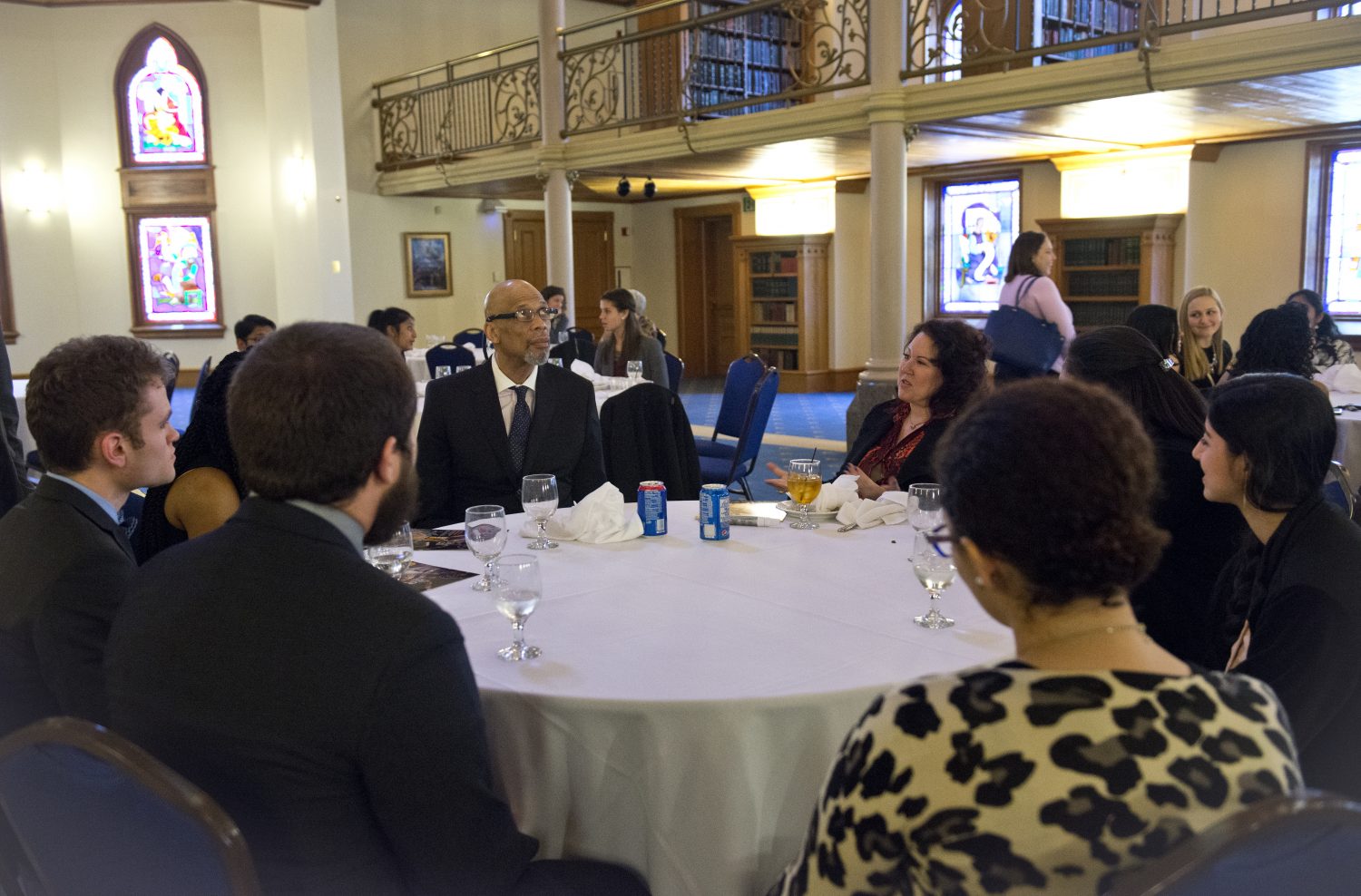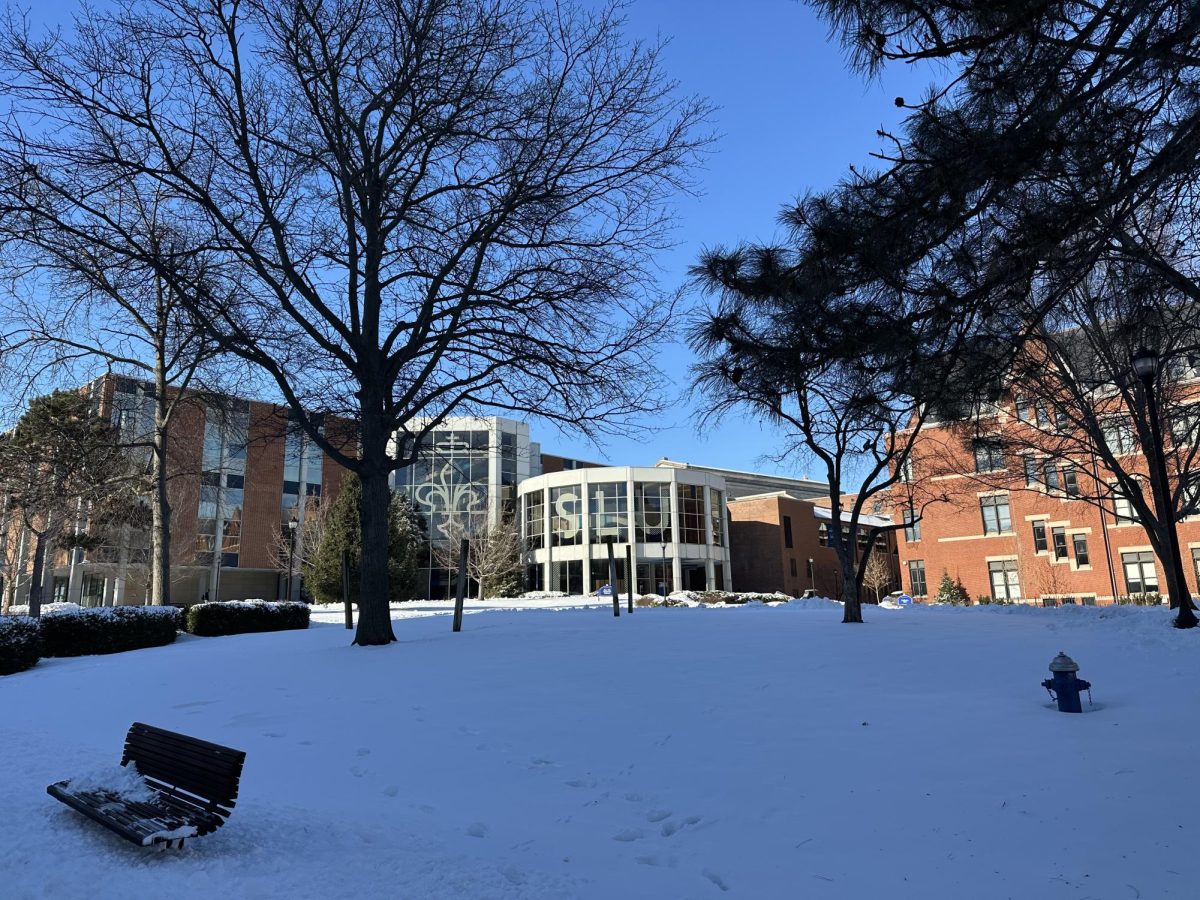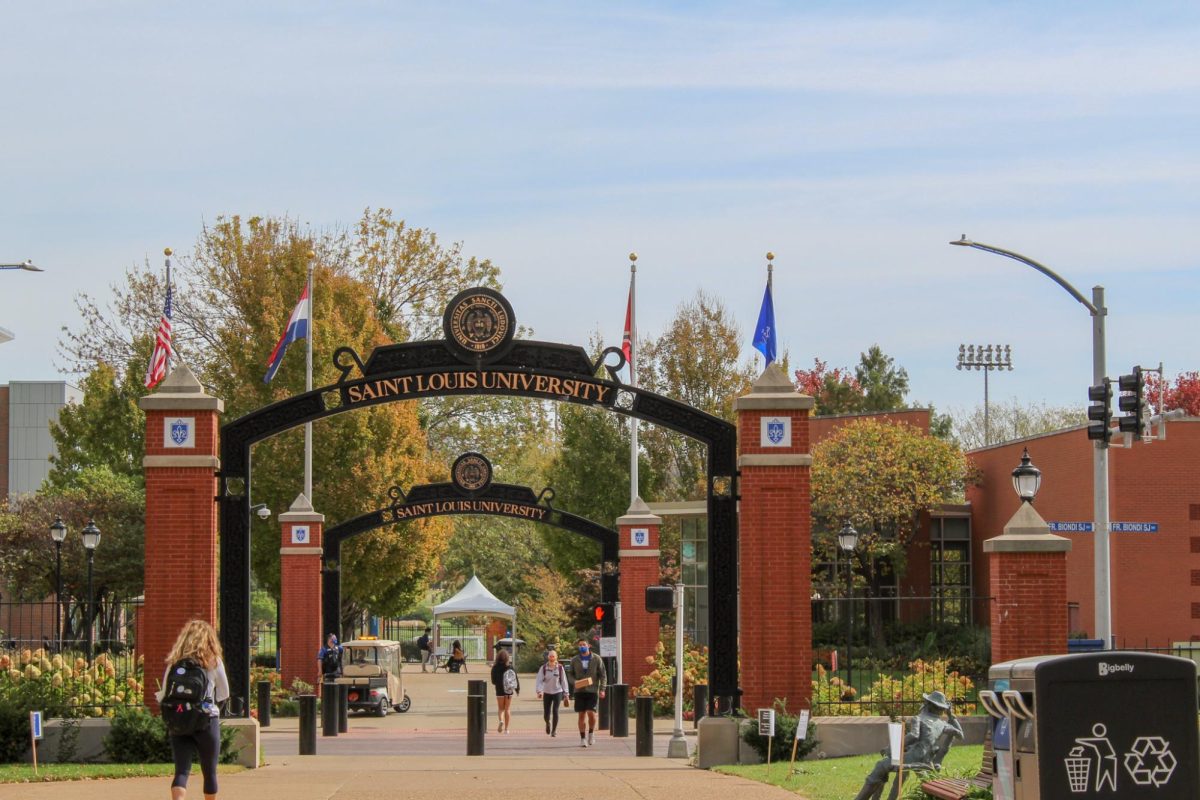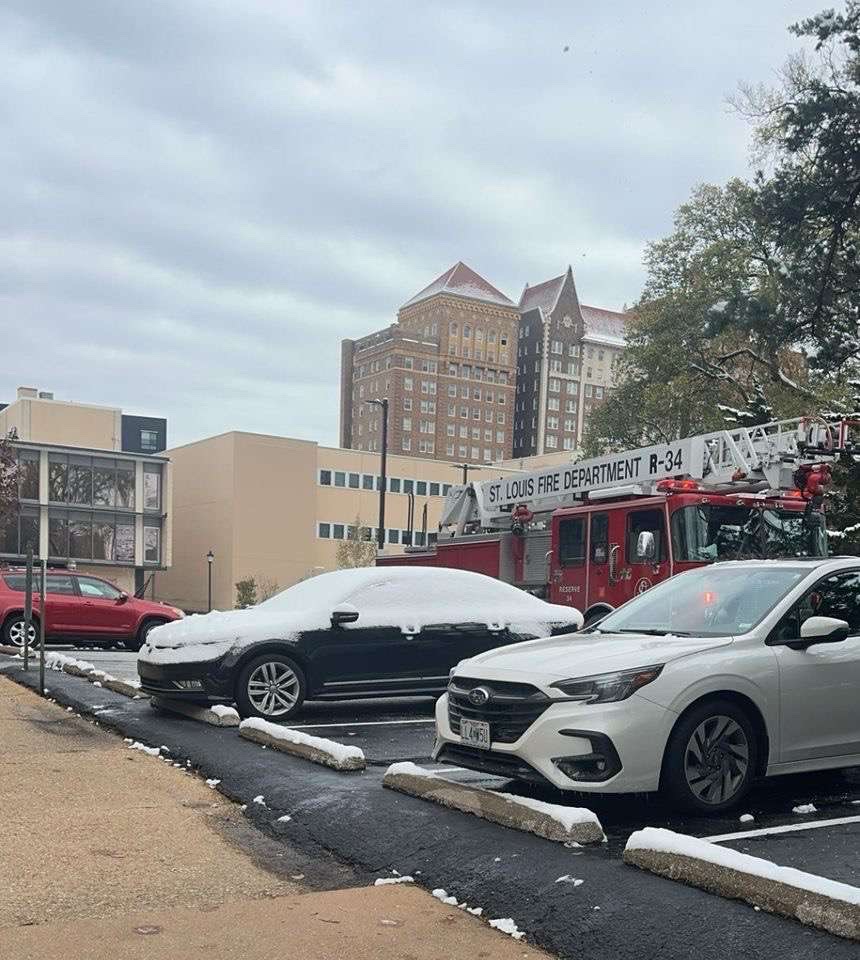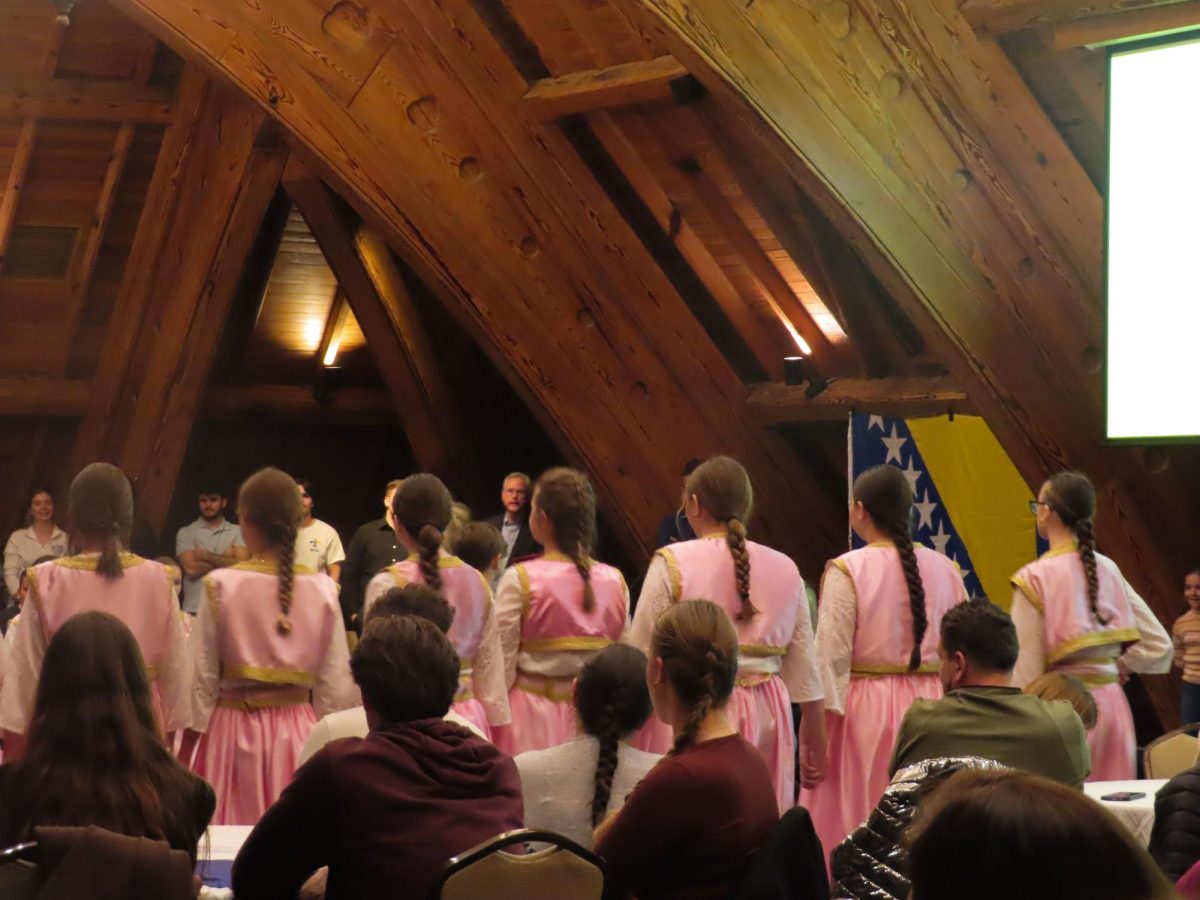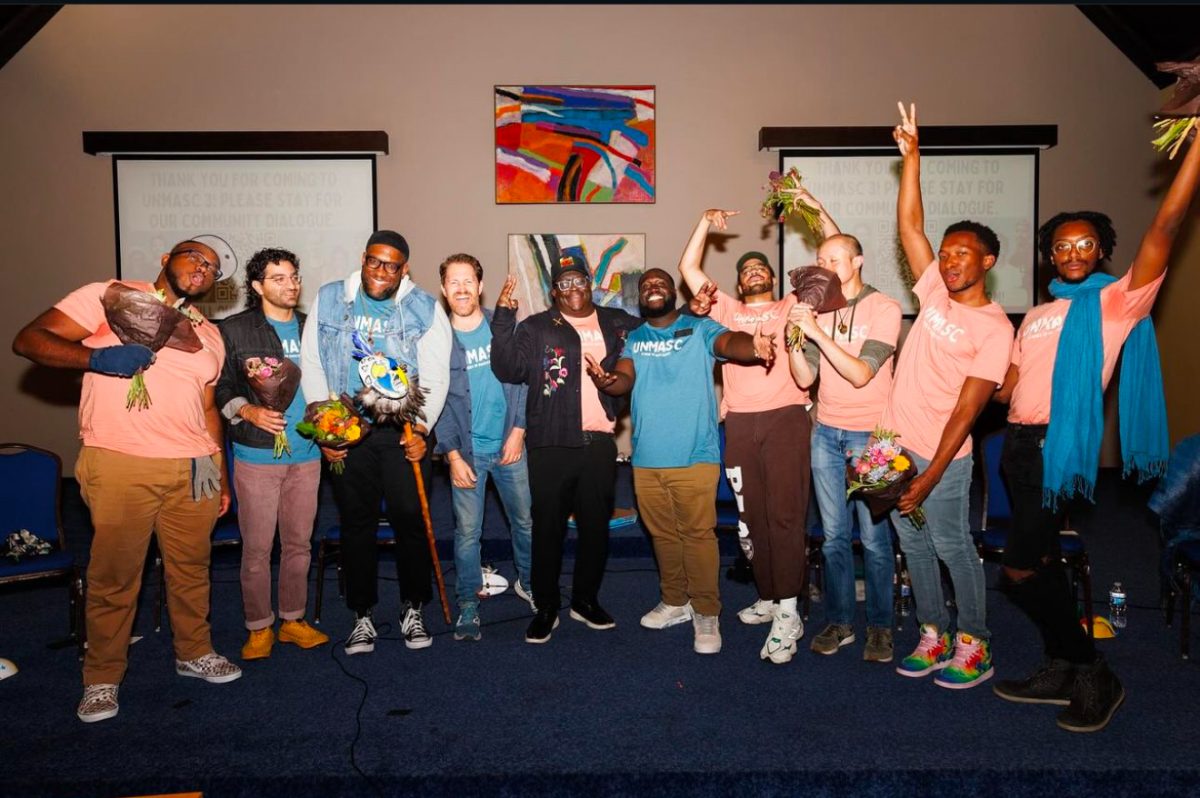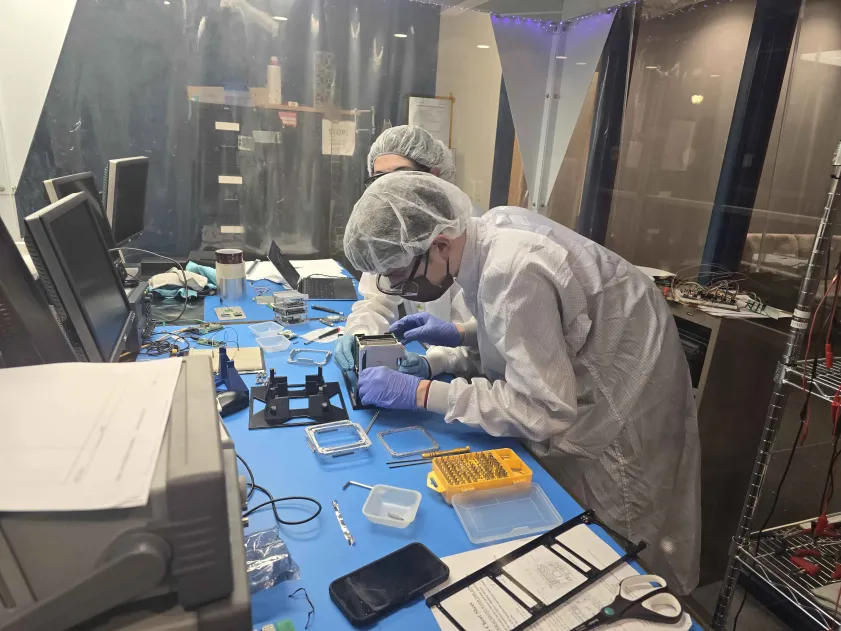Kareem Abdul-Jabbar is best known as the 7’2’’ Los Angeles Laker who made the Sky Hook look easy, but that was 27 years ago. Now, Abdul-Jabbar has taken on a new role as an avid writer and works to call attention to the current social justice issues that plague society. He has published articles in the Washington Post and Time magazine, and has made appearances on networks such as MSNBC. He traveled to Saint Louis University on March 22 to speak on both his basketball career and the work that he is currently focusing on, which includes his new book, “Mycroft Homes.”
Throughout his visit, Abdul-Jabbar touched on the issues that pertain to the St. Louis area, including the Black Lives Matter movement. He expressed how these current events are only a continuation of the Civil Rights Act and therefore portray how racial issues that occurred in that time are still a problem today. Abdul-Jabbar stressed that not only does police brutality need to cease, but also that equality throughout the justice system is vital for progression. When asked his opinion on how to take the steps to end systemic racism, Abdul-Jabbar stated, “We have to make a change by emphasizing equal opportunity. That is the only real way to make change, to give everyone the same chance and let the talent of these individuals determine what the outcome will be. I think that is the only way can deal with it in an equitable manner.”
Abdul-Jabbar also had some advice for how college students could take part in the direct action necessary for change. “I think college students should read what Dr. King had to say about the future. Of course, he was assassinated in 1968, so we are talking about something that was 50 years ago, but he left us with a lot of homework to deal with the political issues and the economic issues that are so intransigent. We still have problems we had when Dr. King was alive and very active, so we still have work to do.”
Being an athlete in the 60s and 70s, Abdul-Jabbar was well versed in the racial tensions of his time. He has been labeled by multiple media outlets as “cold” and has often been compared to fellow basketball player Magic Johnson, who was praised by interviewers.
But Abdul-Jabbar had a very different outlook on how he portrayed himself throughout his NBA career.
“… I didn’t feel that I had to appease the majority, but there was a certain burden that you felt because in those days, any black American who received any amount of focused attention had to represent all black people. That was an added burden, because if you said something weird or crazy it seemed to reflect on all black people, and some felt that burden more than others. Some people did not care about that at all, and nowadays it does not matter. But in those days, it was interesting in the way that black Americans were seen, and how you internalize that really came across”.



